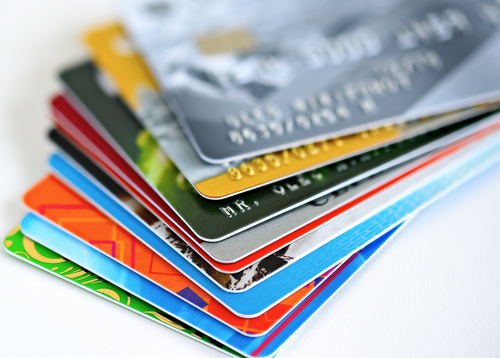Teach a few simple money habits to your children now and you’ll help set them up for a financially free future. Who wouldn’t want that for their kids?
A significant part of my coaching program is not only about helping you to grow your wealth but also to share that knowledge with your children. With this knowledge not being taught at schools, we have to find a way to share what we know with our kids so they can have a better money journey and outcomes. It’s about creating generational wealth.
Here are 7 easy ways to put your child on the path to becoming a money-smart adult. Oh, in case you were wondering, you can use them too.
Let them wait
Good money habits – delaying gratification
Delaying gratification – putting off what we want right now for more financial security in the future, can be tough. Not just for the kids – adults struggle with this too!
Yet delaying gratification may be one of the biggest factors for creating wealth. So learning how to wait is one of the best money habits a kid can have.

Especially in our ‘have it now, pay for it later’ world.
Kids who can master the art of waiting are more likely to become savers who’ll avoid the trap of impulse buying!
You can encourage your kids to wait by having them save their allowance and pay (or contribute) for the new gadget or toy they want – rather than you buying it for them.
Have them help with the weekly grocery shop
Good money habits – learning to stick with a money plan and comparison shopping
Turn the weekly shop into some mini financial lessons.
The supermarket is a good place to instill money habits by learning to stick to a money plan.
Before the shop, write your grocery list and the total amount that you have allocated for groceries.
Explain to your kids that you can’t go over the plan and have them tally up the cost of each item on a calculator or phone as you go to keep track of spending.
To stay on plan, it might mean making decisions between the expensive labels and home brand or skipping a non-essential purchase altogether.
This is a good chance to talk about needs vs wants too – what food or home items are essential and what items are just nice-to-haves.
Get them involved in the family money plan
Good money habits – understanding opportunity cost
Talk your child through the family money plan.
Show them how much money is in the plan for entertainment for the month and ask if they would like to use a portion for a night out at the movies.
Tell them the cost of a night out at the cinema and explain how, for the same price, they could do two movie nights at home with pizza and ice cream. Let them choose the option they prefer.
Understanding opportunity costs from an early age will help your kids make smart money choices in the future.
Pay with cash
Good money habits – not relying on credit cards
To kids, credit cards – and even debit cards – can seem like magical pieces of plastic that let you get whatever you want, whenever you want.

Choose a particular expense – like groceries or takeaway and always pay for it with cash.
Let your kids see what $50, $20, and $100 look like and what they can pay for. Paying with cash helps make money real!
When our daughter was younger she was in a debate with us about buying something she wanted. When we asked her how it should be paid for, she said we just had to go to the machine and get some. Simple right?
Help them set a savings goal
Good money habits – saving
Having their own savings account or savings jar will help your child develop the most important of all money habits for kids – the ability to save!
Let your child decide what they’d like to save for using their pocket money – perhaps art supplies, clothes they want, or an experience they’d like to have – like a trip to a theme park.
Decide on the dollar figure of the goal and work out together how much they will need to save each week from their pocket money to reach it.
You can also share the family savings goal – a campervan trip around New Zealand at Christmas time!
Explain the cost of the trip and how much you have allocated each payday to save for it.
Let them know each time you transfer money to the savings account and track the progress on a calendar or app – this will make it easier for them to follow along and get excited.
Choose a charity or cause to support
Good money habits – giving
Would you like your child to be a cheerful giver?
Helping your kids develop a spirit of generosity and giving to others is a wonderful money habit to cultivate. Show them the different ways they can help others with money; maybe they want to donate a gift at Christmas, sponsor a child or make a donation to a cause they like.
Let them experience how fun and rewarding giving to help others can be!
Money isn’t the only way to give. You can also encourage your kids to give toys, books, and clothes away when they have finished with them, or give their time by helping an older neighbour by weeding the front garden.
Explain compound interest
Good money habits – investing
You want your kids to understand (and hopefully, become excited about!) the cool concept of money earning money. That’s right – compound interest, the eighth wonder of the world.
Explain how when you stash some money in savings you earn interest on that money…
Then the next year, you earn interest on your original savings, plus interest on the interest you earned in the first year.
In the third year, you earn interest on your original savings, plus interest on the interest earned in the first two years.

It becomes a bit like a snowball rolling downhill. It starts out small but with time gets bigger and faster! Your interest receipts get bigger and bigger, and your balance grows faster and faster.
This is probably one for the kids who are a little older and visual aids can be a big help in explaining how simple and compound interest works.
Try showing them compound interest in action with the MoneySmart compound interest calculator.
Conversation starter!
Kick off a conversation about compound interest by asking them which situation would leave them with more money.
If they were given $1000 a day for 30 days or 50 cents on Day 1 which doubled every day for 30 days? Work out the math together and see if they’d change the answer they gave!
Conclusion
There are some simple things that you can do to help your kids learn about the power of money. The benefit of having these principles understood from a young age enables your kids to become money-smart investors that have choices to experience life for all that it has to offer, rather than the alternative which is a less enjoyable life of struggle and stress.
Of all the gifts you can give your kids, I believe this is the most valuable, in fact, it is priceless.
Do you talk to your kids about money? How do you get them interested in learning about how money works?

That’s aweome Chris, such a great idea for the kids, and something they will thank you for in the future. Well done 🙂
Hi Andrew, Great article, we have pocket money and money jars with our kids. They love it. We are also planning to go on a family campervan trip around NZ later this year using the family Holiday jar/ bucket!!!
Glad you liked it Andrew. I hope there are some tips that you can apply for your family 🙂
Terrific post Andrew, some great tips herein for those of us with young families!